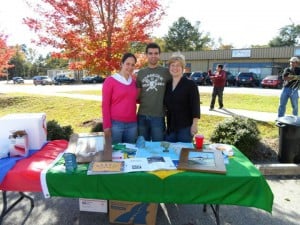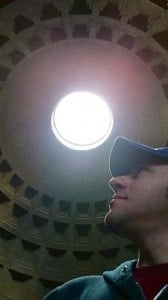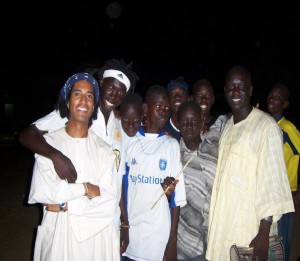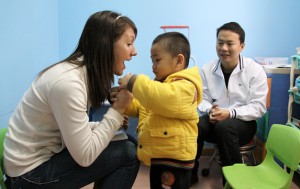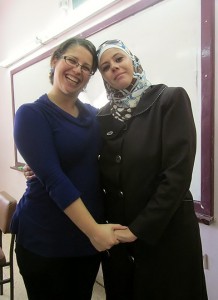
Shadea Mitchell, 2010-2011, Jordan (left), with English teacher Mrs. Ghada at the Al-Ittihad School for Girls in Amman
My time as a Fulbright English Teaching Assistant (ETA) in Jordan was spent primarily in the middle school classrooms of the Al-Ittihad School for Girls, encouraging students to utilize their English conversation skills while also serving as a resource to other English language instructors.
Midway through my Fulbright year, I convinced my supervisor, the school’s seventh grade English instructor, to allow me to lead weekly conversation sessions. Since many students were already well-spoken and comfortable making small talk in English, I wanted to contribute to the English classes in a meaningful way and thought this would be especially beneficial to the older girls. I wanted to encourage them to discuss more interesting topics than those covered in their textbooks but I didn’t intend to discuss anything controversial. Nevertheless, there were a few times when their curiosity led to some intense but rewarding discussions.

